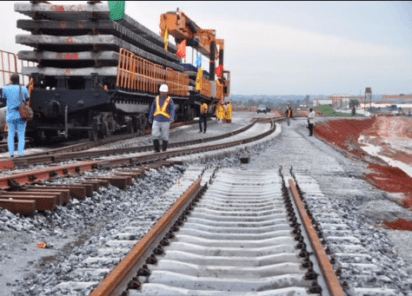By Chinedu Obike
Ordinarily, the construction of a rail line should be a source of joy and hailed as an agent of development, but the decision of the Federal Government to lay a track to the Republic of Niger is generating contrary reactions, with insinuations and controversy trailing the announcement.

Coming at a time when the issue of constructing a railine that will connect the eastern part of the country to Maiduguri, in the North East, is still on the drawing board, the approval of $1.96b for the project which is designed to run from Kano, Nigeria to Maradi in Niger, has become a hot topic in the country and a cross section of Nigerians have voiced strong opposition to the idea.
While the Peoples Democratic Party has described the project as misplaced priority, the Trade Union Congress questioned the rationale behind government’s decision to borrow from the World Bank, International Monetary Fund and China to build a rail line to Niger Republic.
In a statement signed by its President, Comrade Quadri Olaleye, the TUC asked:
“Is there something this government is not telling us? How could the Federal Government come up with such an idea in a country where portable water has become a luxury; right to electricity is regarded as a taboo for an average citizen, roads have become death traps and our health facilities lack malaria drugs?”
In addition, many others seek to be educated on the economic importance of the project when the Lagos-Ibadan rail line is yet to be realized and conversations on the possibility of an eastern corridor are still ongoing.
Reacting to the controversy, however, the Senior Special Assistant to the President on Media and Publicity, Mallam Garba Shehu, said agreement for the project which was actually entered into in 2015, stipulates that Nigeria and Niger would build a rail line to the border town of Maradi.
According to him: “when completed, it will serve domestic industries and play the role of a viable transportation backbone to the West African sub region, starting with the neighbouring Niger Republic for their export and import logistic chain”

